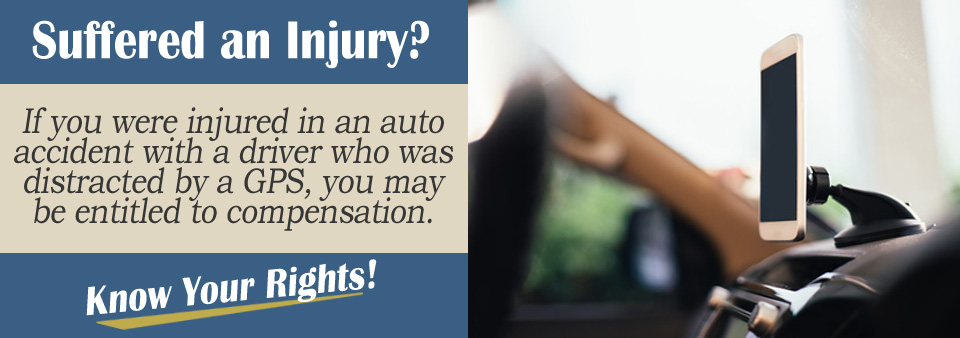The ultimate car accident nightmare is a head-on collision with an eighteen wheeler. It may never happen, but head-on collisions with smaller vehicles happen every day across the U.S. Many of them happen because of distracted driving.
Most people assume the distraction is from a cell phone call or a text message, but it could equally happen because a driver is using a GPS right at the time that they are approaching another vehicle. Head-on collisions don’t have to happen at speed to cause terrible injuries.
You are strongly advised to contact a personal injury attorney after medical treatment to discuss your legal options. A successful claim for compensation can help to pay for the often huge financial cost of a serious head-on collision.
What is the Chance of a Head on Collision With a Driver Distracted by a GPS?
Unfortunately, any kind of distraction can cause a head-on collision, especially on a narrow rural road where visibility may be restricted and one of the drivers is keeping an eye on the GPS rather than looking out for approaching traffic.
Some GPS devices are safer than others, especially those that have an audio commentary, but all GPS devices need manual inputting from time to time. That’s when the vehicle may not be under total control, as the driver is handling the GPS buttons or screen rather than the wheel.
Possible Head on Collision Injuries

Head-on collisions often cause very serious injuries and fatalities. This is because as your vehicle is hit, your body (especially your vulnerable head and face) is forced forwards towards the windshield at the same time that the front of your vehicle is forced back towards you.
The severity of the injury or injuries obviously depends on the relative sizes of the vehicles colliding, their design, and the speed of the impact. At worst, you may be crushed inside the vehicle and may suffer anything from severe internal bleeding and organ damage to facial and head injuries or spinal injury. Even minor head-on collisions can cause more serious injuries than side swipes or rear-enders.
If you think you have been relatively uninjured you should still seek medical examination. This could be invaluable if you decide to sue the driver.
What You Could Do to Recover Damages
Urgent medical treatment will always be the first priority for anyone involved in a head-on collision. It is only when you are in a position to think of what lies ahead that you will be thinking about claiming compensation. A successful personal injury claim will depend on sound evidence, even if your injuries suggest that you were not to blame for the collision.
You will find that the police report made at the scene of the crash, photographic evidence, witness statements, and a vehicle damage report are all important pieces of evidence which will help support your claim. Don’t forget medical reports and statements from anyone who has treated you and copies of invoices for payments you have had to make. Long term injuries must be allowed for in your claim, together with evidence of lost earnings and an amount for non-economic damages such as pain and suffering.
Why You Should Use an Attorney to Help You With a Personal Injury Claim
If you have been seriously injured in a head-on collision with a distracted driver, you are strongly advised to seek legal help from a personal injury attorney. You will need every dollar you can recover from the insurance provider whose client hit and injured you.